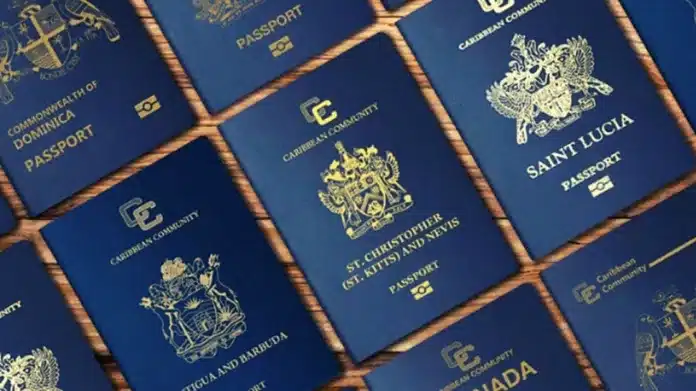
The Caribbean nation of Saint Kitts and Nevis, known for its idyllic beaches, is actually financially sustained by something quite different: the sale of its citizenship. This “golden passport” program allows foreigners to obtain citizenship for a minimum of $100,000, offering tax breaks and visa-free European travel. In 2023, this program was expected to bring in $192 million, accounting for 51% of the country’s revenue.
However, this crucial source of income is under threat as the European Union considers tightening travel rules for nations selling citizenship, a move that could significantly impact the program’s appeal. Prime Minister Terrance Drew has called for strong local support to protect this vital industry.
Saint Kitts, along with four other Caribbean countries – Dominica, Saint Lucia, Grenada, and Antigua and Barbuda – collectively earn over $579 million annually from citizenship-by-investment (CBI) programs. These programs have granted citizenship to at least 88,000 people, many from countries like China, Russia, and Nigeria, who otherwise would require travel permits.
The EU is scrutinizing these programs over concerns that they could facilitate massive fraud and money laundering. Any EU action could drastically change the game, according to Rafael Cintron of Wealthy Expat, a company advising on second passports.
These programs are not just a revenue source; they fund critical infrastructure and social welfare initiatives. For instance, Dominica’s CBI revenue contributes to 55% of its government revenue, helping build an international airport and fund other projects. Similarly, Grenada’s program supports prisons and welfare programs. These small, tourism-dependent economies rely heavily on CBI programs for survival.
In March, these countries barred Russians and Belarusians from their CBI programs in response to the invasion of Ukraine. Despite this, the UK removed visa-free travel for Dominicans and others over security concerns.
The Caribbean nations are engaged in dialogues with European and US officials to highlight their security measures. However, one lapse in due diligence could cause irreparable damage to their brand, as per Mc Claude Emmanuel, CEO of Saint Lucia’s CBI program.
Interestingly, American interest in these programs has surged, driven by a “prepper mentality” and political unease. In Antigua and Barbuda, American applications have tripled since 2019.
The influx of wealthy foreigners has its downsides, as seen in other countries like Portugal, which scrapped its investor residency program due to its impact on the housing market. The EU is also reforming its CBI programs.
Despite these challenges, locals see the benefits of these programs. In Saint Kitts and Nevis, workers recently received a “CBI dividend,” reflecting the program’s direct impact on the local economy. Sherry Gajor, a salon owner in Saint Kitts, notes that such incentives boost local businesses, indicating the program’s positive ripple effect on the community.


